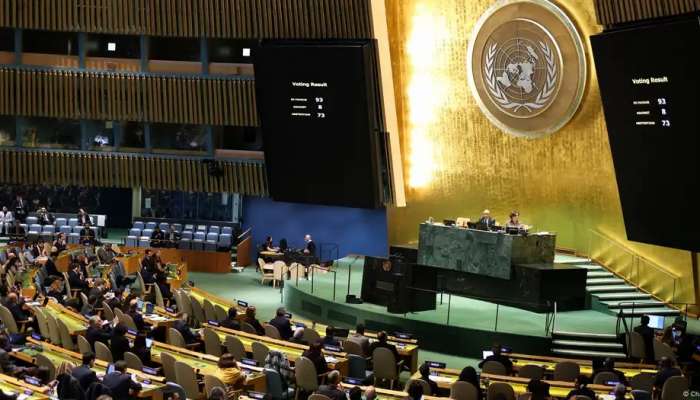
New York: The United Nations General Assembly (UNGA) will mark its 80th edition from Tuesday, September 9, amid a challenging period of international relations.
The General Assembly is the primary deliberative body of the United Nations and, in effect, of global diplomacy.
This year's session will comprise delegations from all 193 UN member states, which all have equal representation on a "one state, one vote" basis.
Unlike other UN bodies, such as the Security Council, this means all members have the same power when it comes to voting on resolutions.
It is also the only forum where all member states are represented.
Who runs the General Assembly?
Each year, a new president of the UN General Assembly is elected from one of the five geographic groups represented in the body.
The president is responsible for opening and closing debates, as well as facilitating discussion and regulating speaking time.
This year's president is former German Foreign Minister Annalena Baerbock, who was elected in June and will take office this month.
The General Debate
Among the key events of the General Assembly is the General Debate, which affords an opportunity for all 193 members to speak.
The theme of the 80th edition is "Better Together: 80 years and more for peace, development and human rights. "
It will begin on Tuesday, September 23, and end on Monday, September 29.
Resolutions aren't binding, so what's the point of the General Assembly?
A notable point of a UN General Assembly is that its resolutions do not require states to act — none of these agreements are binding.
That means that a state can support every resolution made at the Assembly, but never follow or implement the principles agreed to.
The nonbinding nature of agreement-making at the General Assembly has led to criticism of its effectiveness in recent years.
But Panke emphasised the value of the nonbinding nature of the proceedings. She said it provided a platform for nations to indicate their position across the General Assembly agenda and set the stage for building more forceful, legally enforceable agreements.
"They can ignite the process in the General Assembly setting and subsequently convene a Conference of the Parties and pass an international legally-binding treaty," said Panke. One did not necessarily exclude the other.
Panke also pointed out that resolutions formed at the General Assembly had normative power, in spite of their nonbinding nature.
"They set standards of appropriateness against which the public can hold states accountable."